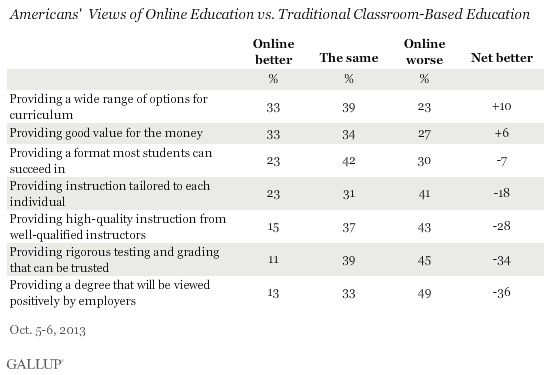The pros and cons of online education
Massive Open Online Courses (MOOCs) have received recognition for providing students with a variety of free or low-cost online classes, but they have their critics.
A recent Gallup poll found that many Americans believe online programs offer better value and provide more variety than traditional classroom education. When it comes to education quality, however, the public is less enthusiastic.
Americans believe online classes are a good value
One-third of Americans say online programs offer better value than traditional education and provide a wider range of classes.
To contrast, only 23% and 27%, respectively, believe traditional education bests online in these areas.

Quality of online education questioned
In the poll, only 34%of U.S. adults rate online programs as “excellent” or “good,” compared to 68% for four-year colleges and universities. Community colleges were ranked almost as highly as 4-year colleges.
The poll also found that Americans employers perceive online classes has having less rigorous testing and grading and less qualified instructors than traditional education.

Reduce college costs by combining online and traditional education
We believe traditional and online education can complement each other to help save students money on their college degree. With MOOCs growing by the day, and traditional 4-year-colleges coming under fire for sky-high tuition costs, it’s clear that online education is going to become an even bigger part of higher education’s future.
What are your thoughts on the poll? Do you think online education is less effective than traditional classroom-based education? Let us know in the comments or tweet us at @CFGCollege.
affording college, choosing a college, college admissions, college value, community college, education quality, MOOCs, online classes, online education, paying for college
